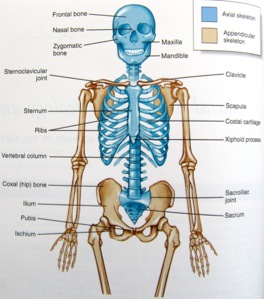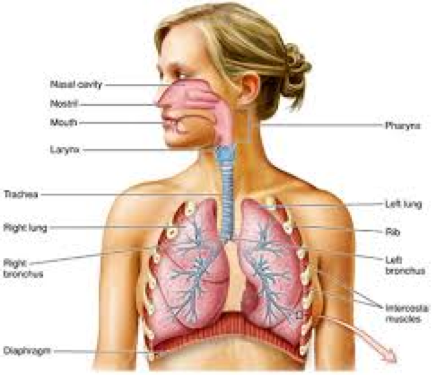Human Anatomy Summer Work On Flowvella
Biology 1 CAS BI 107 For students who plan to major in the natural sciences or environmental science, and for premedical students. Required for biology majors. No prerequisite. High school biology is assumed.
The evolution and diversity of life; principles of ecology; behavioral biology. Students must register for two sections: lecture and laboratory. Carries natural science divisional credit (with lab) in CAS. This course fulfills a single unit in each of the following BU Hub areas: Scientific Inquiry I, Quantitative Reasoning I, Critical Thinking, Research and Information Literacy. Tuition: $2800; lab fee: $200; total charge: $3000 Summer 1 (May 21-June 27).
Biology 2 CAS BI 108 For students planning to major in the natural sciences and for premedical students. Required for biology majors. It is strongly recommended students complete CAS CH 101 (or equivalent) before this course.
High school biology is assumed. Cell and molecular biology, Mendelian & molecular genetics, physiology, and neurobiology. Students must register for two sections: lecture and laboratory. Carries natural science divisional credit (with lab) in CAS. This course fulfills a single unit in each of the following BU Hub areas: Scientific Inquiry II, Quantitative Reasoning II, Critical Thinking, Teamwork/Collaboration. Tuition: $2800; lab fee: $200; total charge: $3000 Summer 1 (May 22-June 27).
Human Infectious Diseases: AIDS to Tuberculosis CAS BI 114 A study of the world's major human diseases, their causes, effects on history, pathology, and cures. Principles of immunology.
Emphasis on present maladies such as AIDS, herpes, cancer, mononucleosis, tuberculosis, influenza, and hepatitis. This course is appropriate for non-majors and students in the health and paramedical sciences (Sargent College). Students must register for two sections: lecture and laboratory. Carries natural science divisional credit (with lab) in CAS. Not for Biology major or minor credit. This course fulfills a single unit in the following BU Hub area(s): Scientific Inquiry I, Quantitative Reasoning II, Critical Thinking. Tuition: $2800; lab fee: $200; total charge: $3000 Summer 2 (July 1-August 8).
Human Anatomy CAS BI 210 Prereq: (CAS BI 105) or equivalent. Intensive preprofessional course for students whose programs require anatomy. Not for biology major or minor credit. Gross structure of the human body; skeletal, muscular, nervous, respiratory, circulatory, digestive, urinary, and reproductive systems. Students must register for two sections: lecture and a laboratory. Carries natural science divisional credit (with lab) in CAS.
Cannot be taken for credit in addition to the course with the same title formerly numbered CAS BI 106. Tuition: $2800; lab fee: $200; total charge: $3000 Summer 1 (May 21-June 27).
Human Physiology CAS BI 211 Prereq: ((CAS BI 105 or CAS BI 108) and (CAS BI 106 or CAS BI 210)) or equivalent. Some knowledge of chemistry and anatomy is assumed.

Intended mainly for students in health sciences. Not for biology major or minor credit; Biology majors/minors should take CAS BI 315. Introduction to principles of systemic mammalian physiology with special reference to humans.
Students must register for two sections: lecture and laboratory. Tuition: $2800; lab fee: $200; total charge: $3000 Summer 2 (July 1-August 8). Systems Physiology CAS BI 315 Prereq: (CAS BI 108 or ENG BE 209) and (CAS CH 101) and (CAS CH 102) or equivalent. An introduction to physiological principles applied across all levels of organization (cell, tissue, organ system).

Preparation for more advanced courses in physiology. Topics include homeostasis and neural, muscle, respiratory, cardiovascular, renal, endocrine, gastrointestinal, and metabolic physiology.
Students must register for two sections: lecture and laboratory. Tuition: $2800; lab fee: $200; total charge: $3000 Summer 1 (May 22-June 27). Fundamentals of Biology 3 CAS BI 383 Prereq: (CAS BI 281 & CAS BI 282) and enrollment in Seven-Year Liberal Arts/Medical Education Program. An introduction to physiological principles applied across the levels of organization (cell, tissue, organ systems). Intended to prepare the student for more advanced courses in physiology. Topics include homeostasis and neural, muscle, cardiopulmonary, renal, endocrine, metabolic, and reproductive physiology. Students must register for two sections: lecture and laboratory.
Tuition: $2800; lab fee: $200; total charge: $3000 Summer 1 (May 21-June 27). Biochemistry 1 CAS BI 421 Prereq: (CAS CH 204 or CAS CH 212 or CAS CH 214) or equivalent. Introductory biochemistry. Protein structure and folding, enzyme mechanisms, kinetics, and allostery; nucleic acid structure; macromolecular biosynthesis with emphasis on specificity and fidelity; lipids and membrane structure; vitamins and coenzymes; introduction to intermediary metabolism. Students must register for three sections: lecture, discussion, and laboratory. Tuition: $2800; lab fee: $200; total charge: $3000 Summer 1 (May 21-June 27).
Biology of Stem Cells CAS BI 551 Prereq: (CAS BI 203 or CAS BI 206), or consent of instructor. Views on stem cell research range from assumptions of a potential cure for most diseases to fears that it will depreciate the value of human life. This course equips students with the science that underlies this discussion, including the biological properties of stem cells and the experimental hurdles to utilization in regenerative medicine. Students must attend both lecture and discussion. Tuition: $2800 Summer 1 (May 21-June 27). Molecular Biology 1 CAS BI 552 Prereq: (CASBI203 or CASBI213) and (CASBI206 or CASBI216). How cells synthesize biologically important macromolecules (DNA, RNA and proteins), as well as their structure, function and regulation.
Both prokaryotic and eukaryotic molecular biology is discussed. Topics include: DNA replication, DNA repair, recombination, prokaryotic transcription, translation, eukaryotic transcription/RNA processing, DNaseI hypersensitive sites, 5-methylcytosine, eukaryotic RNA polymerase structure/CTD modification, eukaryotic promoter structure, general transcription factors, enhancer-promoter loops, histone modification/chromatin remodeling, and non- coding RNA. Discussion of important molecular biological techniques, such as genetic and recombinant DNA techniques, including CRISPR/Cas9. Students must attend both lecture and discussion. Tuition: $2800 Summer 1 (May 21-June 27). Carcinogenesis CAS BI 576 Prereq: (CAS BI 203 & CAS BI 206 & CAS BI 552).
Covers multiple aspects of cancer biology with a focus on molecular mechanisms underlying cancer development and progression, and the implications for therapy. Topics include oncogenes, tumor suppressors, apoptosis, angiogenesis, metastasis, mouse models, and chemotherapy. Emphasis on current research.
Students may not receive credit for more than one of the following courses: CAS BI 327, CAS BI 576, and GMS BT 520. Students must attend both lecture and discussion. Tuition: $2800 Summer 1 (May 21-June 27). Topics in Biology CAS BI 594 Topic for Summer 2019: The Neurobiology of Consciousness and Evolution of Language.
Prereq: Any college-level neuroscience, psychology, or physiology course. Exploration of the neuroscience of imagination from neurons to memory to neurological control of novel conscious experiences. The course covers what makes the brain and human language unique as well as the selectional forces that shaped the brains of our ancestors. Students must attend both lecture and discussion.
Tuition: $2800 Summer 1 (May 21-June 27).
The two-week Clinical Anatomy Summer Program (CASP) is for high school students considering careers in procedure-based medical fields, such as surgery, dental surgery, EMTs/paramedics, and nursing. It may also be of interest to students who intend to study biomedical engineering, occupational or physical therapy, sports medicine, medical education or other health-related fields. The course includes classroom and laboratory sessions led by Stanford instructors, and will include student-led clinical case study presentations, guided dissection opportunities, and surgical simulations with human cadavers.
Human Anatomy Summer Work On Flowvelland
Program Overview. Schedule: June 18-29, 2018. Classes meet daily Monday - Friday 9:00-4:00pm. Attendance is mandatory.
Class size: Approximately 60. Age requirement: Must be age 15 or older to apply. Application Deadline: March 16, 2018. Application fee: $50 Due at the time of application. Course fee: $4,250 Upon notification of acceptance, the entire $4250 course fee is due (date TBA) to ensure a place in the program.
A limited amount of may be available for those in need. Instructors: The course is led by Stanford faculty in the Department of Surgery, Division of Clinical Anatomy. Location: Classes will meet in the CCSR building on the Stanford University Medical Center campus in Palo Alto, CA. Lunch will be provided. Housing: This is a non-residential program.

Students must arrange for their own lodging and transportation. Application requirements: Students will be asked to provide a short essay and grade transcripts. Parental consent forms will be required from accepted students. Homework assignments: Students will complete daily assignments in preparation for each class and will spend time outside of class preparing for daily quizzes and clinical case study presentations. Students may also be required to complete reflective writing assignments based on their class experience. About human cadavers: Dissection of and interaction with human cadavers is a unique and honored privilege. In this course, students learn about the ethical treatment of human specimens donated to Stanford's Willed Body Program.
Appropriate respect for the donors and their generosity-as well as a professional demeanor toward the facilities, instruments, and equipment-must be demonstrated at all times in the laboratory.